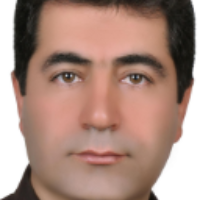Investigating the relationship between academic self-efficacy and academic enthusiasm with regard to the mediating role of self-regulation among English language students
Author(s):
Article Type:
Research/Original Article (دارای رتبه معتبر)
Abstract:
Purpose
Over the past two decades, the application of the concept of academic enthusiasm has become very common (Sedláček & ďeďova, 2020). It has been seen as one of the important factors in students' academic achievement (Sedláček & Šeďova, 2020; Attard & Holmes, 2020; Larrain, Freire, López & Grau, 2019; ďeďova et al., 2019; Webb et al, 2014). Enthusiasm as a result of participation in education occurs when knowledge and learning are valued and applied by the student (Attard & Holmes, 2020). Enthusiasm is the interaction of energy and time students devote to educational activities (Conner, 2016). Enthusiasm refers to a student's commitment or investment in learning activities and is more than a transient emotional state. It refers to a contagious, emotional-cognitive state of focus that concentrates on a particular subject, event, or behavior (Akomolafe, Ogunmakin & Fasooto, 2013). This concept has been proposed as a meta-concept that includes behaviors, cognitions, and emotions (Fredricks, Blumenfeld & Paris, 2004; Wang, Fredricks, Hofkens & Linn, 2016).Academic enthusiasm increases students' awareness of university, strengthens their effort and energy to learn, and allows them to explore different learning processes and their future (McFiern, 2016). One of the important psychological variables that can increase the effect of enthusiasm is academic self-efficacy (Dehghanizadeh and Hossein Chari, 2012). Self-efficacy is one of the cognitive-motivational strategies that includes judging people about their ability to organize and execute a series of tasks to achieve certain types of performance and play an effective role in determining the level of student effort in learning activities (Gala, Wood, Har, Tsukayama, Chiu and Langer, 2014). Another important factor that can affect academic enthusiasm is self-regulation (Lavasani, Ejei, and Davoodi, 2013; Abbasi, Dargahi, Pirani, and Bonyadi, 2015; Shafiee Sarvestani and Askari, 2017; and Stanfon et al., 2018). Self-regulatory skills focus on the role of the individual in the learning process and include strategies that students use to adjust their cognitions (Alfred, Niens, & Gramopady, 2019). Students' self-regulatory skills are affected by self-efficacy (Ebrahimi, Pakdaman and Hosseinpour, 2016; Barzegar Befrooi and Saadipour, 2012); and can increase academic enthusiasm (Shafiee Sarvestani and Askari, 1398; and Stanfon et al., 2018). Thus, students' self-regulation can play a mediating role in the relationship between self-efficacy and academic enthusiasm. Therefore, the present study intends to examine the effect of self-efficacy on academic enthusiasm by considering the mediating role of self-regulatory in students of English as a foreign language at University of Kurdistan.MethodologyThe method of the present study is quantitative which was analyzed with practical purposes using structural equation modeling (SEM) technique and maximum likelihood method. The statistical population included all students of English as a foreign language at University of Kurdistan in the academic year 2019-2020. The research sample was selected based on Krejcie and Morgan's table using a random sampling method. In the data collection stage, 289 questionnaires were collected from which 16 questionnaires were excluded in the analysis process due to deficiencies in completing the questionnaires and having missing data. Finally, 273 questionnaires were analyzed as the final data. The instrument used in the present study was a questionnaire. To measure academic self-efficacy, the Jinks and Morgan (1999) Academic Self-Efficacy Questionnaire, which had 30 items and three subscales of talent, context, and effort. The Cronbach's alpha obtained for the present questionnaire was 0.61. To measure academic enthusiasm, Fredricks et al.'s (2004) Student Enthusiasm Questionnaire, which had 15 items and three subscales of behavioral, emotional and cognitive, was used and Cronbach's alpha obtained for this questionnaire was 0.73. To assess self-regulation skills, Bouffard et al.'s (1995) self-regulatory questionnaire which has 14 items and has three subscales of cognitive, metacognitive, and motivational, was used and the Cronbach's alpha value obtained for this questionnaire was 0.63. SPSS software version 23 was used for descriptive reporting of the data and AMOS software version 23 was used to test the relationships between variables.Results
The results of the present study showed that the chi-square on the degree of freedom (CMIN/DF) is 1.39; root mean square error of approximation (RMSEA) is 0.044; The root mean square residual (RMR) is 0.055; The normed fit index (NFI) is 0.937; Incremental fit index (IFI) is 0.981; Tucker - Lewis index (TLI) is 0.971; Comparative Fit Index (CFI) is 0.981; The Parsimony Normed Fit Index (PNFI) is 0.624; And the Parsimony Comparative Fit Index (PCFI) is 0.654. These results indicate the acceptable fit of the model with the research data, and the conceptual model of the research is confirmed. Moreover, the results of the significance test of path coefficients indirectly and as a total effect showed that the explained path coefficient of the relationship between academic self-efficacy and academic enthusiasm with the role of indirect self-regulatory mediator is significant with a coefficient of 0.42 and total effectiveness with a coefficient of 0.89.Conclusion
Explaining the relationship between academic self-efficacy and academic enthusiasm, it can be stated that since enthusiasm among students causes them to grow in the framework of scientific activities and get rid of negative situations such as academic reluctance, so self-efficacy has a positive effect over academic enthusiasm and is a factor for planning and controlling students in order to maintain and prevent distraction from doing homework. (Salmaaro, Tolvanan, Narmi, 2009; Niroumand Ali Babalu, 2018). Explaining the relationship between academic self-efficacy and self-regulation, it can be stated that according to Bandura's theory of self-efficacy, students who feel that learning ability is acquired are more internally aroused and show higher levels of self-efficacy in learning situations (Bandura, 1997). High self-efficacy can provide the ground for the application of high-level cognitive strategies (such as metacognitive self-regulation), because engaging in self-regulation requires empowering oneself, having a lot of perseverance and patience, and a desire to stay in task (Barzegar Befrouei and Saadipour, 2012; Nasri, Saleh Sadeghpour and Cheraghian Radi, 2014)Explaining the relationship between self-regulation and academic motivation, it can be said that students who have self-regulatory skills in dealing with problems are independent, self-taught, and able to use a variety of learning strategies (Kitchens, 2008) and show more enthusiasm in university. Therefore, in order to increase the enthusiasm in the university, students can increase their self-regulation skills (Shafiee Sarvestani and Askari, 1398).Keywords:
Language:
Persian
Published:
Research in Teaching, Volume:10 Issue: 1, 2022
Pages:
81 to 106
magiran.com/p2462339
دانلود و مطالعه متن این مقاله با یکی از روشهای زیر امکان پذیر است:
اشتراک شخصی
با عضویت و پرداخت آنلاین حق اشتراک یکساله به مبلغ 1,390,000ريال میتوانید 70 عنوان مطلب دانلود کنید!
اشتراک سازمانی
به کتابخانه دانشگاه یا محل کار خود پیشنهاد کنید تا اشتراک سازمانی این پایگاه را برای دسترسی نامحدود همه کاربران به متن مطالب تهیه نمایند!
توجه!
- حق عضویت دریافتی صرف حمایت از نشریات عضو و نگهداری، تکمیل و توسعه مگیران میشود.
- پرداخت حق اشتراک و دانلود مقالات اجازه بازنشر آن در سایر رسانههای چاپی و دیجیتال را به کاربر نمیدهد.
In order to view content subscription is required
Personal subscription
Subscribe magiran.com for 70 € euros via PayPal and download 70 articles during a year.
Organization subscription
Please contact us to subscribe your university or library for unlimited access!



